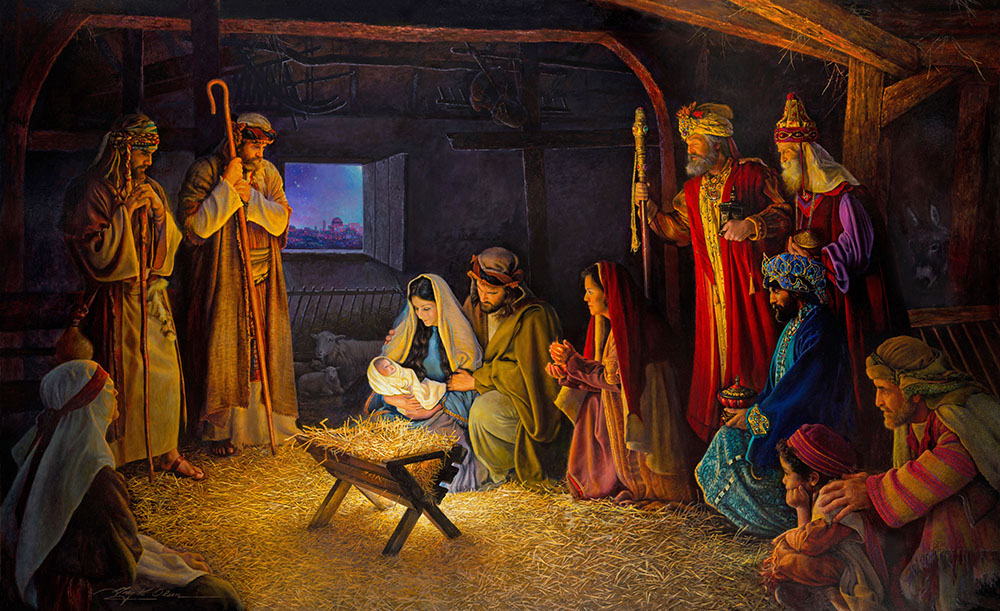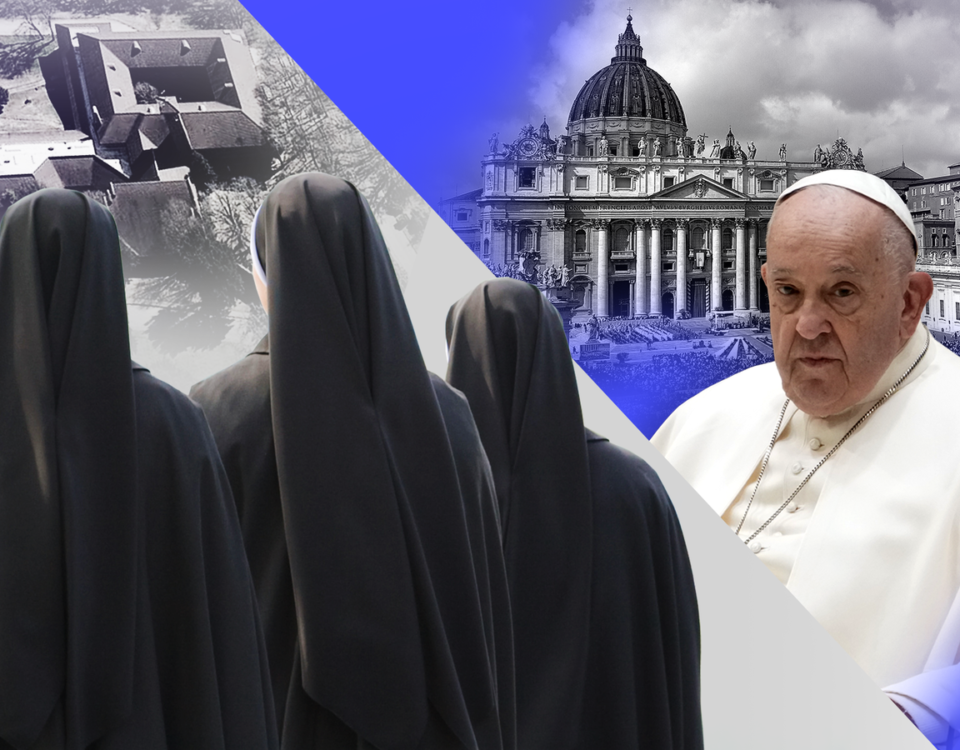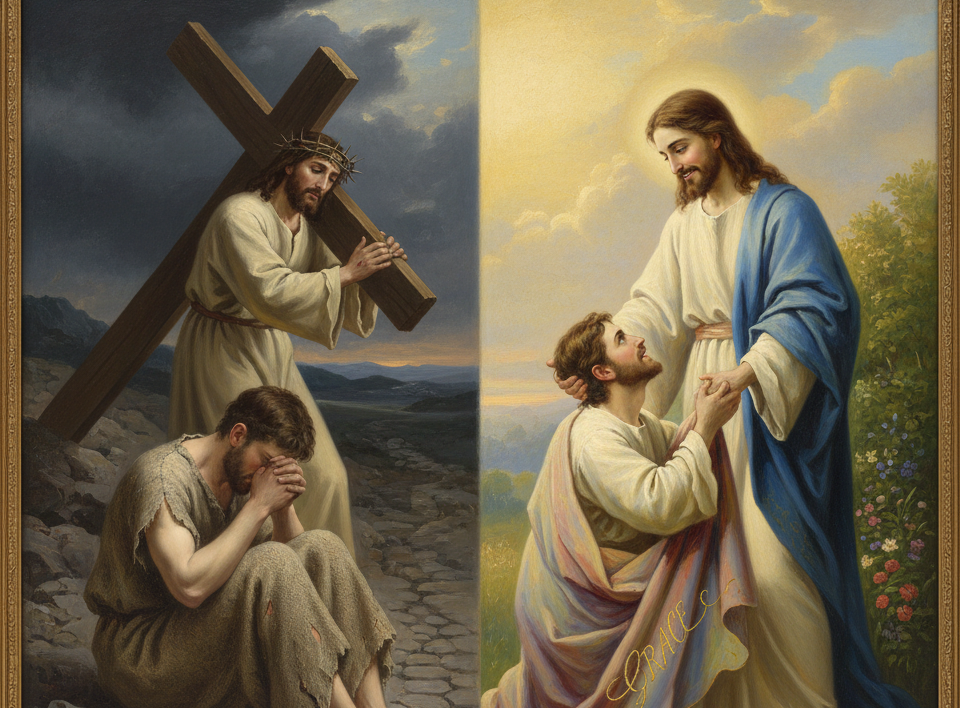Divine Retreat Centre UK – Official Website

Children’s Liturgy – 33rd Sunday – Action and Accountability -Part 2
December 4, 2023
If you do this, God will lift you up in due time
January 2, 2024The nativity story, a fundamental part of Christian faith, especially in Catholicism, is often recounted but always worth revisiting for its profound depth and meaning. Let’s explore the nativity story once again, diving into the nuances and details as narrated in the Gospel of Luke, Chapter 2.
“In those days a decree went out from Emperor Augustus that all the world should be registered” (Luke 2:1).
Emperor Augustus, ruling over the vast Roman Empire, which spanned parts of Europe, the Middle East, and extending to India, was known for his authoritative governance. Despite the disunity in his empire, Augustus was adamant about asserting his control, leading to the implementation of laws across different regions.
In this period, Emperors often viewed themselves as divine, equating themselves with gods. Augustus Caesar’s decree to have everyone register in their ancestral lands is a historical fact, aligning with the Biblical narrative and confirming the timing of Jesus Christ’s birth. The Roman Empire, facing economic challenges, likely saw this decree as a means to bolster its economy.
This decree had a spiritual significance in Catholic understanding. Registration signified a declaration of belonging – to a nation, family, or heritage. Interestingly, this registration coincided with the birth of Jesus, bringing the Kingdom of God into the world. While Augustus controlled a vast empire, the Bible’s wording suggests a broader spiritual registration into the ‘Heavenly Empire’ with the coming of Christ.
“This was the first registration and was taken while Quirinius was governor of Syria” (Luke 2:2).
This registration was significant, differing from earlier ones, as it encompassed a wider area and marked a notable historical event.
“All went to their own towns to be registered” (Luke 2:3).
The mass movement of people for registration had economic implications, stimulating spending and aiding the Roman economy. This historical fact parallels modern governmental strategies to bolster economies.
“Joseph also went from the town of Nazareth in Galilee to Judea, to the city of David called Bethlehem, because he was descended from the house and family of David” (Luke 2:4).
Joseph’s journey from Nazareth, a relatively unknown village, to Bethlehem, a town of great significance, fulfills the prophecy of Micah 5:2. Bethlehem, meaning ‘house of bread,’ symbolically ties to Jesus as the ‘bread of life.’ Joseph, belonging to the lineage of David, had royal ties, which were recognized through this registration. This historical and spiritual lineage underscores the Catholic teaching of Jesus as the Messiah, predestined and prophesied.
The narrative further emphasizes the humility and humanity of the Holy Family. Despite their significant spiritual roles – Mary as the Immaculate Conception and Joseph as a righteous man – they faced hardships and challenges. Their journey and struggles remind Catholics of the humility and humanity inherent in the Christian experience, teaching believers to embrace life’s trials with grace and faith.
“And she gave birth to her firstborn son and wrapped him in bands of cloth and laid him in a manger, because there was no place for the guest room” (Luke 2:7).
The birth of Jesus in a manger, the simplest of places, signifies God’s choice to enter the world in humility and simplicity. This profound event challenges Catholics to embrace simplicity and trust in God’s providence, regardless of life’s circumstances.
The narrative of Mary and Joseph seeking shelter, only to be turned away, reflects a deeper spiritual lesson. It reminds believers that rejection by the world can often lead to God’s greater plan being unveiled. This lesson is further echoed in the lives of saints like Mother Teresa and Saint Cupertino, who found their calling in humble beginnings and simple settings, demonstrating God’s power to transform the ordinary into extraordinary.
In conclusion, as we approach the celebration of Christmas, let’s remember the humble beginnings of Jesus. His birth in a manger, the challenges faced by His earthly parents, and the profound spiritual implications of these events, call us to a deeper understanding and appreciation of our faith. Let this story inspire us to embrace humility, trust in God’s plans, and find joy and gratitude in the simplicity of our lives, knowing that our ultimate destiny lies in Heaven.
Transcribed by Jusfica Lobo




